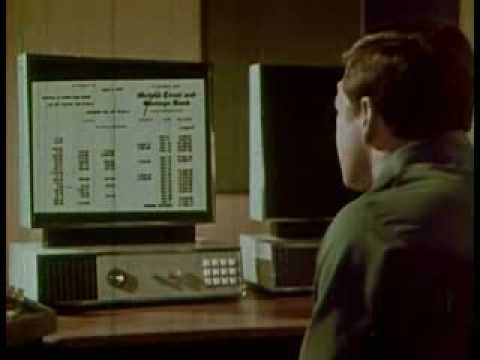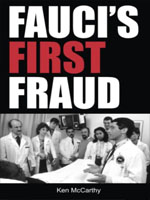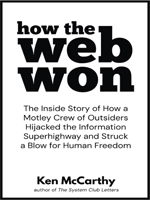The Internet in 1969
A brief history of the internet
Click here to support Brasscheck
Walt Howe’s
Internet History
The Internet was the result of some visionary thinking by people in the early 1960s who saw great potential value in allowing computers to share information on research and development in scientific and military fields. J.C.R. Licklider of MIT, first proposed a global network of computers in 1962, and moved over to the Defense Advanced Research Projects Agency (DARPA) in late 1962 to head the work to develop it. Leonard Kleinrock of MIT and later UCLA developed the theory of packet switching, which was to form the basis of Internet connections. Lawrence Roberts of MIT connected a Massachusetts computer with a California computer in 1965 over dial-up telephone lines. It showed the feasibility of wide area networking, but also showed that the telephone line’s circuit switching was inadequate. Kleinrock’s packet switching theory was confirmed. Roberts moved over to DARPA in 1966 and developed his plan for ARPANET. These visionaries and many more left unnamed here are the real founders of the Internet.
When the late Senator Ted Kennedy heard in 1968 that the pioneering Massachusetts company BBN had won the ARPA contract for an “interface message processor (IMP),” he sent a congratulatory telegram to BBN for their ecumenical spirit in winning the “interfaith message processor” contract.
The Internet, then known as ARPANET, was brought online in 1969 under a contract let by the renamed Advanced Research Projects Agency (ARPA) which initially connected four major computers at universities in the southwestern US (UCLA, Stanford Research Institute, UCSB, and the University of Utah). The contract was carried out by BBN of Cambridge, MA under Bob Kahn and went online in December 1969. By June 1970, MIT, Harvard, BBN, and Systems Development Corp (SDC) in Santa Monica, Cal. were added. By January 1971, Stanford, MIT’s Lincoln Labs, Carnegie-Mellon, and Case-Western Reserve U were added. In months to come, NASA/Ames, Mitre, Burroughs, RAND, and the U of Illinois plugged in. After that, there were far too many to keep listing here.







